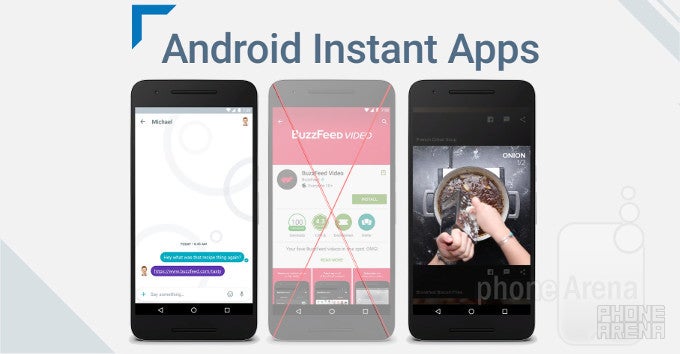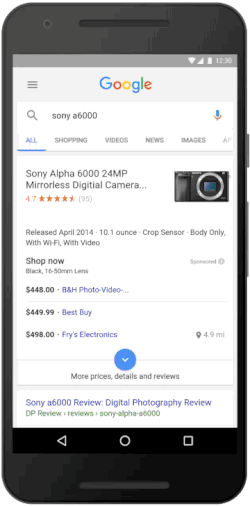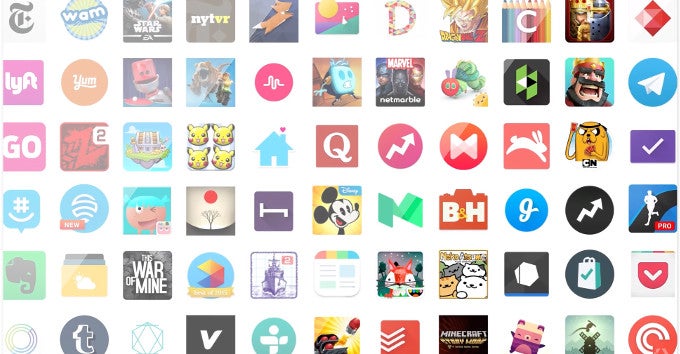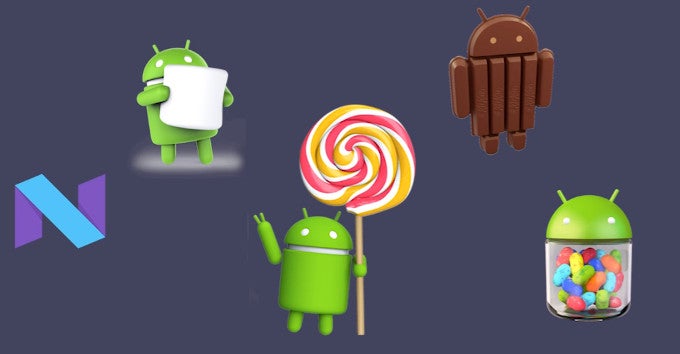Instant Apps are a rare feat of Android brilliance that might just change the OS for good
This article may contain personal views and opinion from the author.

"What were Instant Apps again?"

Instant Apps coming from a Google search result
To achieve that, what Android does is simply download only the necessary bits of the code and assets (such as images and fonts, etc.) for that specific location within the app. In a sense, you're essentially 'streaming' apps to your device. It's an elegant solution, really, and one that has the potential to seriously—and perhaps permanently—change the way we think about and experience mobile apps. Especially in the context of ever faster download speeds on mobile. All developers have to do to join is add and rework some of the code to their existing creations.
Instant Apps have a clear path to ubiquity

Instant Apps coming from a deep link within an app
In any case, it seems that Google has ensured that integrating Instant Apps functionality to third-party apps is easy enough. More importantly, however—and this is a sort of a precedent for Android—this new feature will work on any Android device with API level 16 or higher. In human terms, that means anybody with Android 4.1 Jelly Bean or higher is a potential new user for Instant Apps. And according to my napkin calculations, that's nearly 96% of the entire Android population as of May 2016. When was the last time a new Android feature was available for the entire world, regardless of their firmware version? Yep, that's right, exactly never, more or less. So that's a big draw for devs and a boon for users.
In closing, the field appears set for Instant Apps to become a market reality in an unprecedentedly short time frame. Developers apparently don't need to spend months integrating the new code, the near entirety of the Android user base will have access to it, and this might just be one of the clearer signs of the often-speculated arrival of the 'post-app era'.
Post-app era?

Spend enough time reading stories related to the apps and smartphone industry, and the phrase 'mobile-first' will eventually become as familiar as your palm. Just a buzz word? Not really, as mobile-first is a strategy that many Unicorns (startup companies valued at over $1bn) have embraced, and even the old dogs like Google have been calling themselves mobile-first companies for years now. In Google's case, this stems from the simple fact that, with absolute certainty, mobile traffic—and therefore searches—will eventually overshadow traffic derived from traditional computers.
But while the mobile-first mantra has ensured that many successful startups first focus on building enticing apps rather than démodé websites, it appears that we're now at a point of app oversaturation. According to comScore data from even as far back as 2014 (2 years is a lot in tech), users were downloading just a little over a single app per month. Critically, a relatively tiny portion of the entire population made up the bulk of downloads, which kind of skews the average. In reality, most people, even then, were over the app obsession of old when we were all lining up around the digital corner to download the latest 'makes-a-fart-noise' app. Today, that's even more so the case.
And it's not that we don't like apps, it's just that we're increasingly uninterested in 'wasting' time hunting them down and searching for them. And even when they're presented to us by chance, we often skip ahead as we can't be bothered with yet another download. Instant Apps has the potential to forever change that.
If you could "stream" the parts of the apps that you need instead of downloading them in full, wouldn't you prefer that?

Instant apps with an NFC-enabled Park Meter loading just the payment page of the parking app
After all, if that park meter has a built-in NFC chip to let me automatically download just the payment page of the associated parking app, then why would I even want the full app to clutter my homescreen and clog my storage? And if product links navigate me deeply into popular e-commerce services, such as eBay and Amazon, after just a web search, then why install those? And, as Google adeptly asked on stage, why would you have the B&H Photo app installed if you only buy a new digital camera every few years or so? All of this is doubly relevant in the context of Google working hard on making pain-free Android Pay payments available in Instant Apps. So why install, when you can just stream? Of course, with this I take for granted that Instant Apps become commonplace.
And they most probably will.
Making sense of this all

A new feature coming to essentially all Android is a rare feat! Instant apps will be available on devices running Android 4.1 Jelly Bean and higher.
Just as Google decoupling essential apps from the core Android software in order to provide easy updates to everybody was a smart and powerful move, so are Instant Apps poised to change Android for the better, and for everybody. With just a paltry 7.5% of the entire installed base running the latest Android 6.0 Marshmallow build, I'd wager that many of you will agree that having neat features locked behind updates that take forever to arrive or never come has been a problem for a long time. Even if it's just tiny fixes, many would prefer to have the latest thing, especially now that Google is working on making the update process seamless and largely invisible to the user. This isn't the case for Instant Apps.
Instant Apps as a project are likely to succeed mostly because they offer great value to ALL users.
I imagine many dev houses will be spending a lot of time deliberating over Instant Apps, and the few key threats they pose to their full-blown creations. In a developer's mind, you installing their full app will likely always be preferable to you just zapping through its Instant App self. But with Google promising to let the folks behind the apps on your homescreen monetize Instant Apps, and even integrate seamless mobile payments through Android Pay, it's likely that many will follow anyway. Besides, the value proposition here is just too enticing from a consumer point of view—I circle back to the parking app example above—that both businesses looking to provide better services, and the people using those services, will eventually compromise whatever leverage devs have to exert control. In practice, demand for such functionality will (likely) easily overpower inertia and even warranted skepticism.From where I'm sitting, this is great news for us users, and an opportunity for many under-appreciated and largely invisible developers that have been battling Play Store obscurity and the rising costs of user acquisition to reach users that they'd otherwise have to spend a fortune to. And while I'm not oblivious to the technical constraints in place, I do hope that we see more projects such as Instant Apps that bring tangible benefits to the entire Android population and not just the chosen few with the latest flagships.










Things that are NOT allowed: